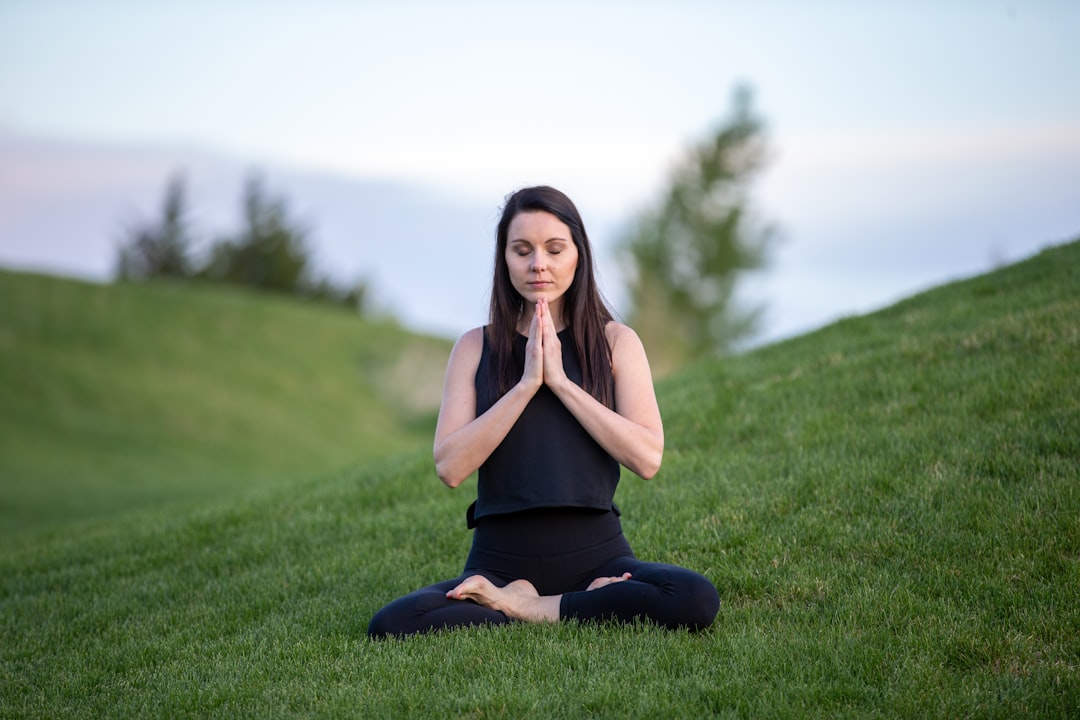Welcome to the world of mindfulness. In an increasingly fast-paced world, it can be easy to get caught up in the hustle and bustle of everyday life. We are constantly rushing from one task to another, checking off items on our to-do lists, and never taking a moment to breathe and simply be present in the moment.
That’s where mindfulness comes in. By cultivating a sense of awareness and presence, we can begin to approach our lives with a sense of calm and balance. Mindfulness doesn’t require any special equipment or training, and it can be practiced anywhere, at any time.
In this blog post, we’ll explore various mindful practices to help you start your day on a positive note, stay focused and present throughout the day, and wind down in the evenings. By incorporating these practices into your daily routine, you can begin to create a life that is more grounded, centered, and fulfilling. So let’s dive in and discover how to embrace mindfulness in our daily lives.
Starting the Day on a Mindful Note: Morning Rituals
Morning routines are an integral part of starting your day on a positive and mindful note. Many people tend to wake up rushing through their morning routines, which can leave us feeling stressed and anxious throughout the day. However, taking some extra time to focus on your well-being can have a significant effect on your mindset and productivity for the day.
By incorporating mindful practices into our morning routine, we can establish a healthy and positive foundation for the day ahead. This can be accomplished through various methods, such as meditation, yoga, journaling or even a simple stretch routine.
Meditation is one of the most powerful practices to incorporate into your morning routine to start the day in a mindful way. It allows you to clear your mind and set an intention for the day ahead. If you are new to meditation, starting with guided meditations can be helpful. There are many apps available, such as Headspace or Calm, that provide guided meditations for beginners.
Yoga is another practice that can be integrated into your morning routine to provide a sense of mindfulness and physical awareness. Yoga can be done at home or in a class setting, and it can be tailored to your needs and experience level. A simple sun salutation sequence can be a great way to stretch your muscles and clear your mind to start your day.
Journaling is another practice that has been shown to be beneficial in promoting mindfulness and self-reflection. Taking a few moments to jot down your thoughts and intentions for the day can help you stay focused and centered and reduce stress levels.
Overall, incorporating mindful practices into our morning routines can have significant effects on our overall well-being and productivity throughout the day. By taking some time for yourself in the morning, you can set a positive and mindful foundation for the day ahead.
By incorporating mindful practices into our morning routine, we can establish a healthy and positive foundation for the day ahead.
Staying Present in the Moment: Mindful Breathing
Breathing is one of the most fundamental physiological processes of the human body, yet we often take it for granted. Mindful breathing is a powerful tool that can help us stay present in the moment, reduce stress, and improve our overall well-being.
To practice mindful breathing, start by finding a comfortable seated or lying down position. Close your eyes and bring your attention to your breath. Notice the sensation of the breath moving in and out of your body. Feel the rise and fall of your chest and belly.
As you breathe, focus your attention solely on the breath. When other thoughts or distractions arise, acknowledge them without judgement and gently bring your attention back to the breath.
Mindful breathing can be practiced anywhere, anytime, and for any length of time. It can be especially helpful during times of anxiety or stress. Taking a few deep breaths, focusing on the present moment, can help calm the nervous system and reduce tension in the body.
Incorporating mindful breathing into your daily routine can have profound effects on your overall well-being. It can help you stay grounded in the present moment, improve concentration and focus, and even strengthen the immune system.
So take a few moments each day to practice mindful breathing, and see how it can transform your mind and body.
To practice mindful breathing, start by finding a comfortable seated or lying down position.
Nourishing Your Body and Mind: Healthy Habits
When it comes to mindfulness, taking care of your body and mind is essential. One of the best ways to do this is by practicing healthy habits. These practices can include nourishing your body with healthy food, getting enough sleep, and engaging in regular physical activity.
Eating a healthy diet can help you feel better both physically and mentally. Foods that are nutrient-dense and rich in vitamins and minerals can give you sustained energy throughout the day and improve your overall mood. Incorporating fruits, vegetables, whole grains, and lean proteins into your meals can help ensure that you’re getting the nutrients your body needs to function at its best.
Getting enough sleep is also crucial for your overall health and well-being. Lack of sleep can lead to mood swings, difficulty concentrating, and even physical health problems such as heart disease and obesity. Setting a consistent sleep schedule and practicing good sleep hygiene can help ensure that you’re getting enough restorative rest each night.
Finally, engaging in regular physical activity can not only help keep your body healthy but also improve your mental health. Exercise releases endorphins, which are feel-good chemicals that can improve your mood and reduce stress and anxiety. Whether it’s going for a walk, doing yoga, or lifting weights at the gym, finding an activity that you enjoy and incorporating it into your daily routine can help you establish a healthy habit that will benefit both your body and mind.
Incorporating these healthy habits into your life can be a simple yet effective way to support your mindfulness practice. By taking care of your body and mind, you’ll be better equipped to stay present in the moment and cultivate a sense of inner peace and tranquility.
Incorporating these healthy habits into your life can be a simple yet effective way to support your mindfulness practice.
Connecting with Nature: Outdoor Activities
Spending time in nature has been shown to have numerous benefits for our physical and mental health. From reducing stress to improving mood and increasing creativity, being in nature can be a powerful tool for mindfulness and well-being.
Some popular outdoor activities include hiking, camping, and kayaking. These activities allow us to immerse ourselves in nature and become more present in the moment. As we hike through a forest or paddle down a river, we become fully engaged in the experience, leaving behind the distractions and worries of daily life.
But you don’t have to go on an epic adventure to reap the benefits of nature. Simply taking a walk outside or sitting in a park can be enough to soothe the mind and improve our mood. In fact, studies show that even just looking at nature can have a positive impact on our well-being.
Connecting with nature can also foster a sense of awe and wonder, which can increase our feelings of gratitude and appreciation. When we take the time to notice the beauty around us, we become more mindful of the present moment and develop a deeper sense of connection to the world around us.
So, whether it’s a leisurely stroll through a neighborhood park or a multi-day camping trip in the wilderness, make sure to take the time to connect with nature and enjoy all the benefits it has to offer. Your body and mind will thank you for it.
When we take the time to notice the beauty around us, we become more mindful of the present moment and develop a deeper sense of connection to the world around us.
Cultivating Gratitude: Mindful Appreciation
Gratitude is the state of being thankful and appreciative of what you have in life. Practicing gratitude is a mindful habit that can help you focus on the positive aspects of your life and increase your happiness. Cultivating gratitude can be done in a variety of ways, and it is essential to make it a part of your daily routine.
One way to cultivate gratitude is by keeping a gratitude journal. Every day, take a few minutes to write down three to five things you are grateful for. These can be small or significant things in your life, such as a new friendship, a delicious meal, or a beautiful sunset. Writing down what you are thankful for helps you shift your focus from negative thoughts to positive ones and helps you appreciate the good things in your life.
Another way to practice gratitude is by expressing it to others. Thank the people in your life who have made a positive impact, even in small ways. Expressing gratitude can create a positive feedback loop of kindness, increasing your happiness and the happiness of those around you.
Additionally, practicing mindfulness can help you cultivate gratitude. By being present in the moment and fully aware of your surroundings, you can notice the small things that you may usually overlook. Take a moment each day to pause and appreciate the beauty of the world around you. Whether it’s the sound of birds chirping, the warm sun on your skin, or the taste of your favorite food, these small moments of appreciation can add up to a greater sense of gratitude in your life.
Incorporating gratitude into your daily life is essential for a balanced and mindful existence. By practicing gratitude, you can shift your focus from what you don’t have to what you do have, leading to increased happiness and fulfillment in life.
One way to cultivate gratitude is by keeping a gratitude journal.
Creating a Calming Environment: Self-Care Practices
Taking care of yourself is essential for overall well-being, and creating a calming environment is a key aspect of self-care. With our fast-paced lives and multiple responsibilities, finding ways to make our homes a peaceful and relaxing sanctuary can do wonders for our mental health.
Here are some self-care practices you can adopt to create a calming environment:
Declutter Your Space
Having a cluttered and disorganized home can lead to feelings of stress and overwhelm. Take some time to go through your belongings and get rid of things you no longer need or use. Simplify your space and focus on the things that bring you joy and peace.
Use Soothing Scents
Scent is a powerful tool in creating a calming environment. Consider using essential oils, candles, or incense with calming scents like lavender, chamomile, or jasmine. These scents can help you relax and unwind after a long day.
Create a Cozy Atmosphere
Make your home a cozy and inviting space by adding soft blankets, comfortable pillows, and warm lighting. Set the mood for relaxation with dimmer switches, lamps, or candles. Take the time to create a space where you can truly unwind and relax.
Practice Mindful Meditation
Taking just a few minutes each day to meditate can do wonders in reducing stress and anxiety. Find a quiet space in your home and focus on your breathing. Let go of any thoughts and simply be in the present moment. There are many meditation apps and resources available to help you get started.
Get Plenty of Rest
A good night’s sleep is essential in keeping our bodies and minds healthy. Create a calming bedroom environment by using blackout curtains, comfortable bedding, and a supportive mattress. Unplug from electronics at least an hour before bedtime and make sure to get seven to eight hours of sleep each night.
Taking care of yourself and creating a calming environment is an ongoing process. Incorporate these self-care practices into your daily routine, and you’ll begin to feel the benefits in your overall well-being.





